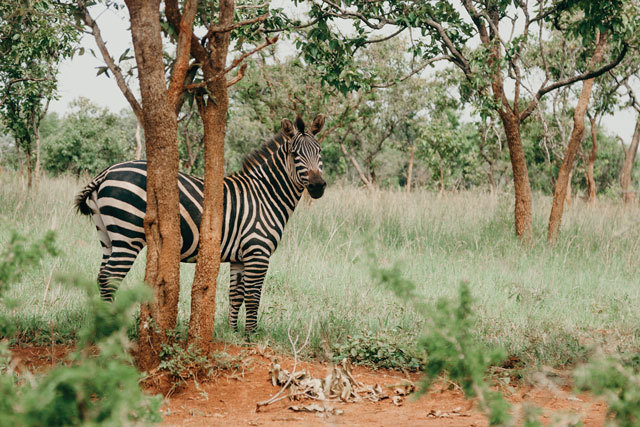WHO RUN RWANDA? Women. Ever since the country’s tragic genocide nearly 25 years ago, the women left behind have been rallying together. As entrepreneurs, politicians (nearly 68 percent of the country’s government officials are female), and business owners, women are building Rwanda up, and the heart of all the action is Kigali—the capital city’s become a center for technology, tourism, arts, and more. This small country is known as the land of a thousand hills, and driving through Kigali can feel like breezing across California, but cleaner (thanks in part to monthly mandatory community cleanup days called umuganda). A quick Google search will also tell you that Kigali is the safest place to visit in Africa—making it an empowering, female-forward destination.
LOCAL CULTURE
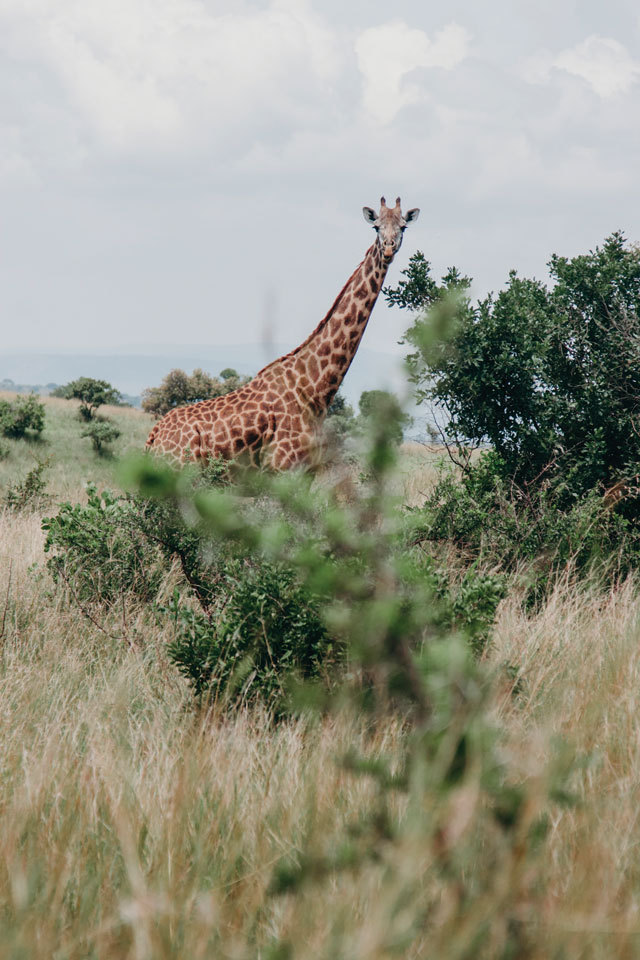 Akagera National Park
Akagera National Park
Put the Nyamirambo Women’s Center (KN 7 Ave.)—an NGO (nonprofit) founded in 2007 by 18 Rwandan women living in the Nyamirambo neighborhood—on your itinerary. Support their mission to fight gender-based violence, inequality, and discrimination by booking a walking tour, which includes a visit to a local hair salon, a family compound, two mosques, a tailor shop to check out vibrant traditional fabrics known as kitenge, and, finally, a traditional lunch served in the home of one of the center’s finest cooks. Or, you can learn to live outdoors like a local at the Urugo Women’s Opportunity Center (Kayonza) and explore the hills of Rwanda about an hour and a half from Kigali. The Urugo center gives local women a safe environment to learn and develop skills, as well as a place to explore their entrepreneurship and hone their business acumen. This space was built by women for women and welcomes female tourists, which is perfect since it’s is on the way to Akagera National Park, a well-known protected wetland where the “Big Five”—lions, leopards, rhinoceroses, elephants, and Cape buffalos—can be spotted. If you’re en route to some major animal sightings, consider a stay at Urugo; spacious safari tents complete with stunning views of the valley and the women’s farm can be as little as $50 per night.
DRINK
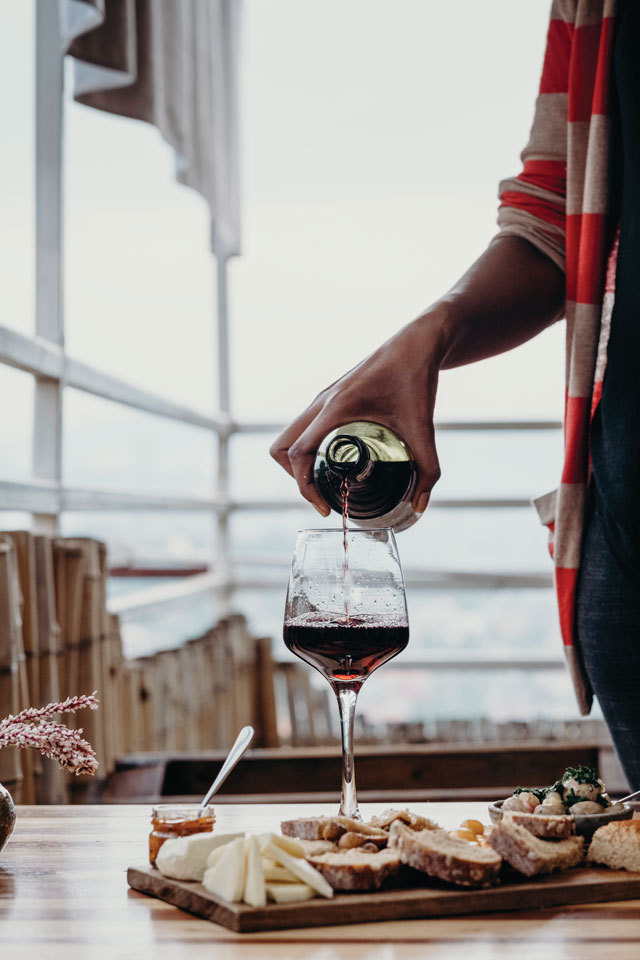 Inzora Rooftop Café
Inzora Rooftop Café
Rwanda is known for its java. Coffee shops line the streets of Kigali, but a cup at Question Coffee (8 KG 8 Ave.) is extra good—the beans, roasted in-house, are grown by female farmers in the area. If you’re interested in what goes on behind the scenes, book their immersive specialty coffee master class, which includes a tour of a farm, an inside look at the roasting and brewing processes, and, of course, a tasting. Every Friday the scenic Inzora Rooftop Café above the Ikirezi Bookstore (15 KG 5 Ave.) serves seasonal cocktails and wine. Your average bar in Kigali can be dark with limited drink options, but Inzora boasts a modern look, big open windows, and tasty concoctions.
FOOD
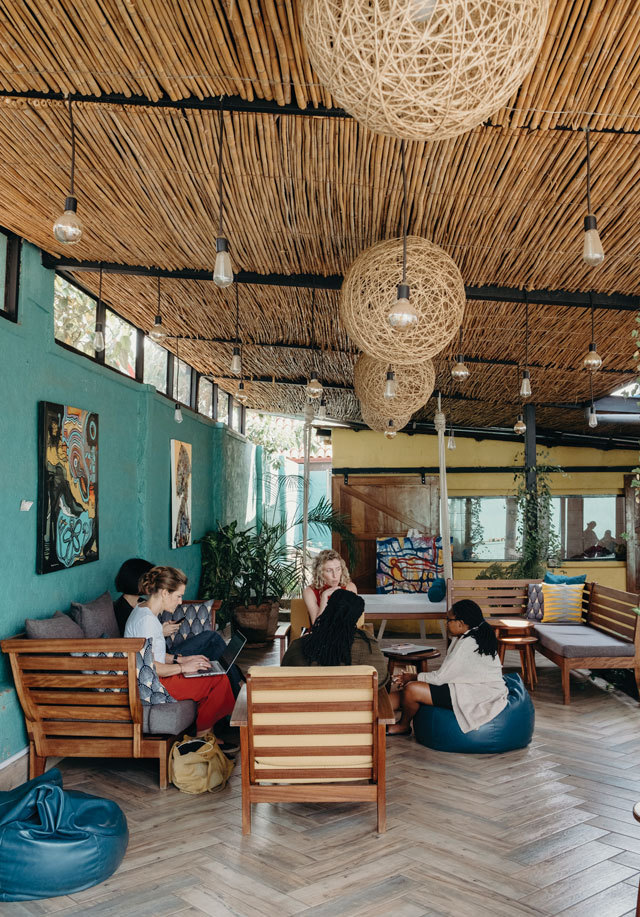 The Women’s Bakery
The Women’s Bakery
For stunning hillside views, sit by a window at Papyrus (KG 674 St.) and enjoy some U.S. Top 40 music and dim sum—the duck spring rolls are a crowd favorite. For some local grub, head to Panorama Ten to Two (KN 203 St.) and try a dish called “big fish,” a giant tilapia stuffed with onions, seasoned with flavorful spices, and served with plantains or potatoes that can feed up to three people (it’s worth the long wait). Let’s face it—the highlight of any meal is dessert. Skip to the good stuff, aka freshly baked breads and pastries, at The Women’s Bakery (13 KG 176 St.)—the pain au chocolat is a solid choice. It’s more than just a bakery, though; since 2015 the organization (womensbakery.com) has offered a 200-plus hour training course to vulnerable women, and it offers ongoing support as students open bakeries in their own communities, reducing food insecurity in the process.
SHOPPING
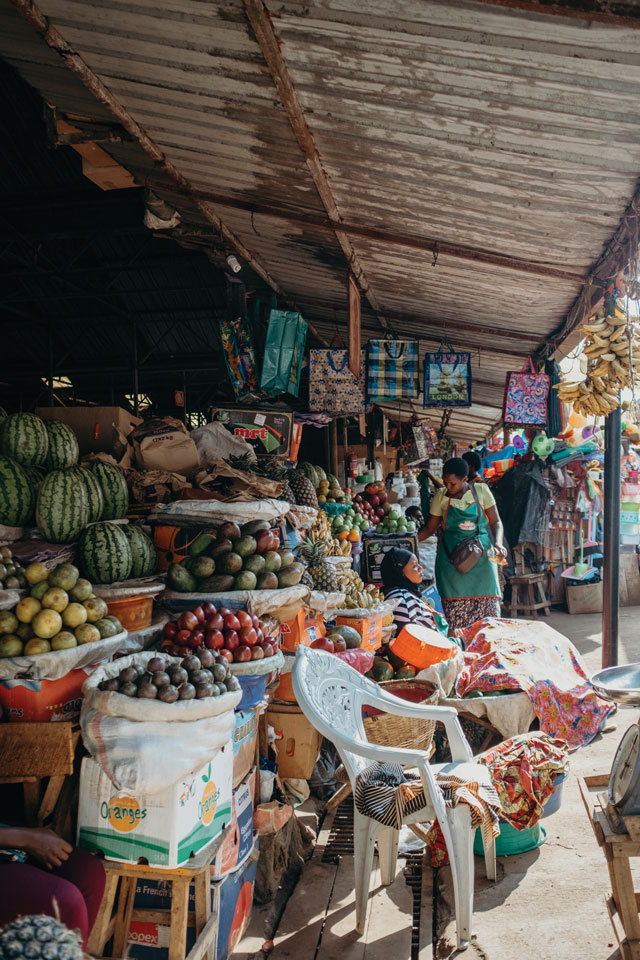 Kimironko Market
Kimironko Market
Candy Basomingera and Linda Mukangoga are the Rwandan masterminds behind Haute Baso (39 KG 9 Ave.), a clothing, accessories, and home décor store empowering local female artisans by featuring their goods and paying them fairly. You’ll easily want to buy all your souvenirs here, like the area’s popular hand-woven baskets or a statement-making look made from local fabrics. Wood Habitat (16 KG 674 St.), run by a woman named Paradis Imfura, sells gorgeous Rwandan-made furniture and home goods. For a more immersive experience, don’t miss the Kimironko Market (KG 194 St.) where all kinds of vendors hawk their goods daily. Move past the produce to the back of the market where you’ll find tons of colorful kitenge. Pick out a style or two and get a market tailor to make something for you.
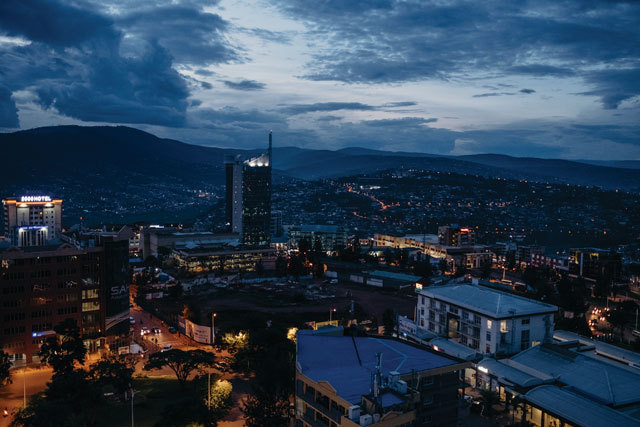 Kigali at night
Kigali at night
By Isis Briones
Photographed by Laura Mulkerne
This article originally appeared in our Spring 2020 print edition from the “You Go, Girl” series. Subscribe today!
More from BUST
The Feminist Guide To Jefferson City, Missouri
The Feminist Guide to Boulder, Colorado
A Feminist Guide To Morongo Basin, California

